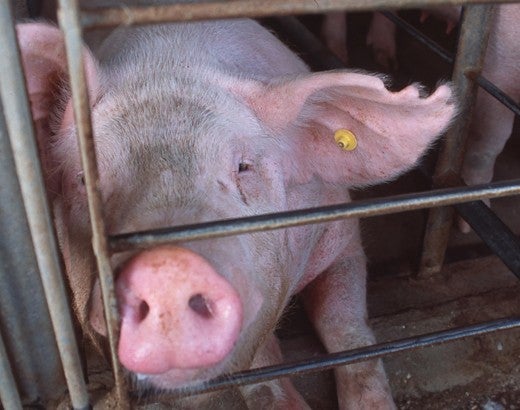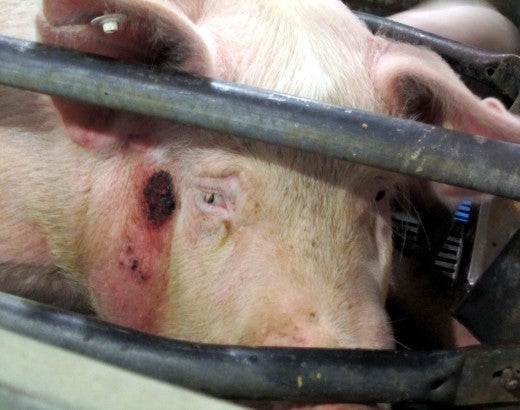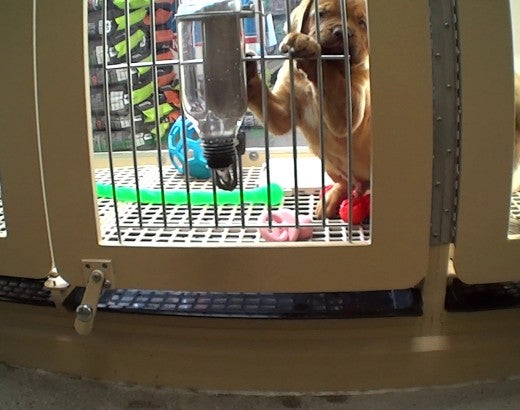We’ve fought hard to enact and defend Proposition 12 and similar laws to protect farm animals in more than a dozen states. Now, we’ll turn to the full House and the Senate to overturn the House Agriculture Committee’s folly. The fate of animals raised for food, now and in the future, hangs in the balance, and we won’t abandon them or their cause without a struggle.
Incredibly, the U.S. mink farming industry is also given a handout in this mess of a bill. The farming of mink for fur is a cruel and miserable business with no redeeming social value; in the era of COVID-19, avian flu and a future of continuing pandemic threats, it is also a genuine public health risk that more than 20 other nations have gone so far as to completely prohibit. But here in the U.S., members of the House Agriculture Committee have chosen instead to subsidize this dying industry and its expansion into new global markets.
Nor were the financial interests of the nation’s high-volume dog breeders and puppy mill operators neglected in the package, which blatantly targets animal rescue groups with the obvious goal of making it harder and costlier for them to bring rescued animals into the U.S. At a time when climate change is driving increasing need for such rescues, this provision to extinguish global animal rescue efforts is especially concerning; its definitions impose potential civil and criminal liability onto animal rescue organizations bringing dogs from foreign countries to place them with shelter partners so they can find new homes in the U.S. This language in this Farm Bill provides a gift to American Kennel Club breeders and puppy millers who turn a handsome profit from animal sales. When our Humane Society International colleagues and other organizations conduct international rescue operations with the goal of seeing animals adopted into loving homes, not sold at payday lender-type prices through a Petland store, for example, it threatens the AKC’s dog-buying business model.
The Committee also failed to include pro-animal bipartisan measures pertaining to Animal Welfare Act enforcement by the U.S. Department of Agriculture such as those that have been enacted in previous Farm Bills. This time around, natural candidates would have been the Better CARE for Animals Act and Puppy Protection Act, two bills that would hold USDA-regulated facilities accountable and improve the standards of care for animals living in puppy mills and other facilities. All the committee did here was produce a request for a report on enforcement from the USDA. There are enough reports on the agency’s shelf already. What we need is action to hold cited violators seriously accountable.
Nor did the framers of this Farm Bill let an opportunity to weaken the Endangered Species Act go to waste. They included a provision that exempts the U.S. Forest Service and the Bureau of Land Management from consulting with the U.S. Fish and Wildlife Service on land management plans when critical habitat is newly designated or a species within such forests is newly listed as threatened or endangered.
Four Democrats joined the Republicans on the committee to pass the bill and there can be no sugarcoating its damaging consequences if passed in this form. This Farm Bill is an undisguised attempt to boost the profits of factory farms to the detriment of consumers, more humane farmers, state governments and the environment. Pretty obviously, too, the chair kept his door wide open to other special interests responsible for animal suffering and misery, and, worse, encouraged them. In an era of unprecedented support for the humane cause from Americans of all stripes, Chair Thompson and the other members who voted for it are aiming to take the nation dramatically backward on animal welfare.
That said, this fight is not over. We’ll fight this harmful Farm Bill in the full House. Moreover, we expect to find the animal welfare bar set higher in the Senate Agriculture Committee, and we won’t miss a beat in our efforts to keep these undeserving measures out of the Senate Farm Bill and the final package. The good of animals and people now and in the future depends on it.
Sara Amundson is president of the Humane Society Legislative Fund.



